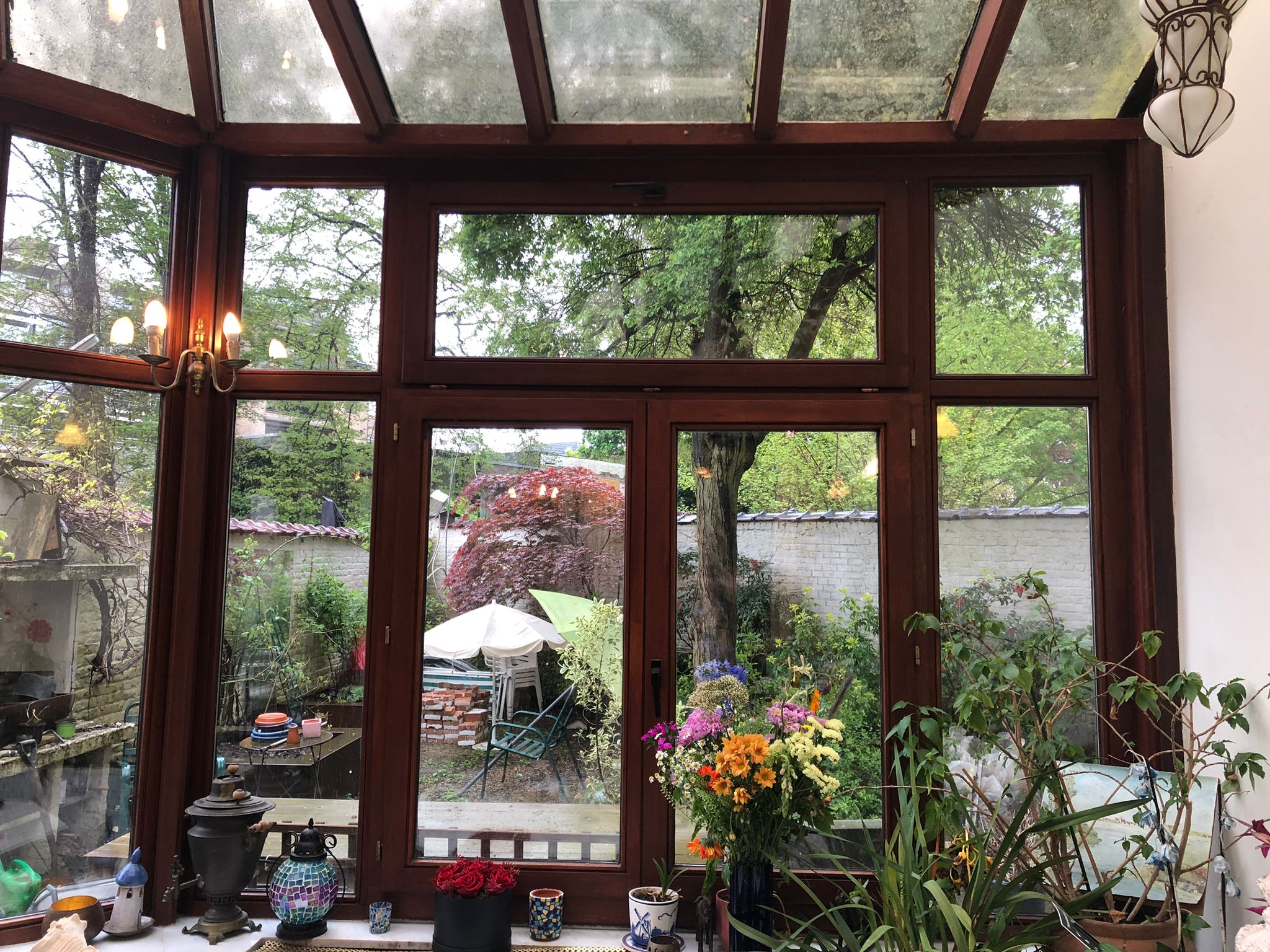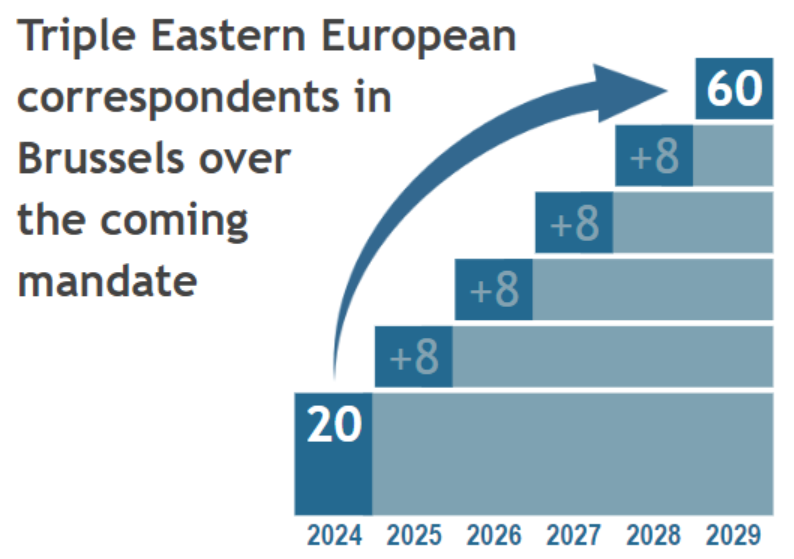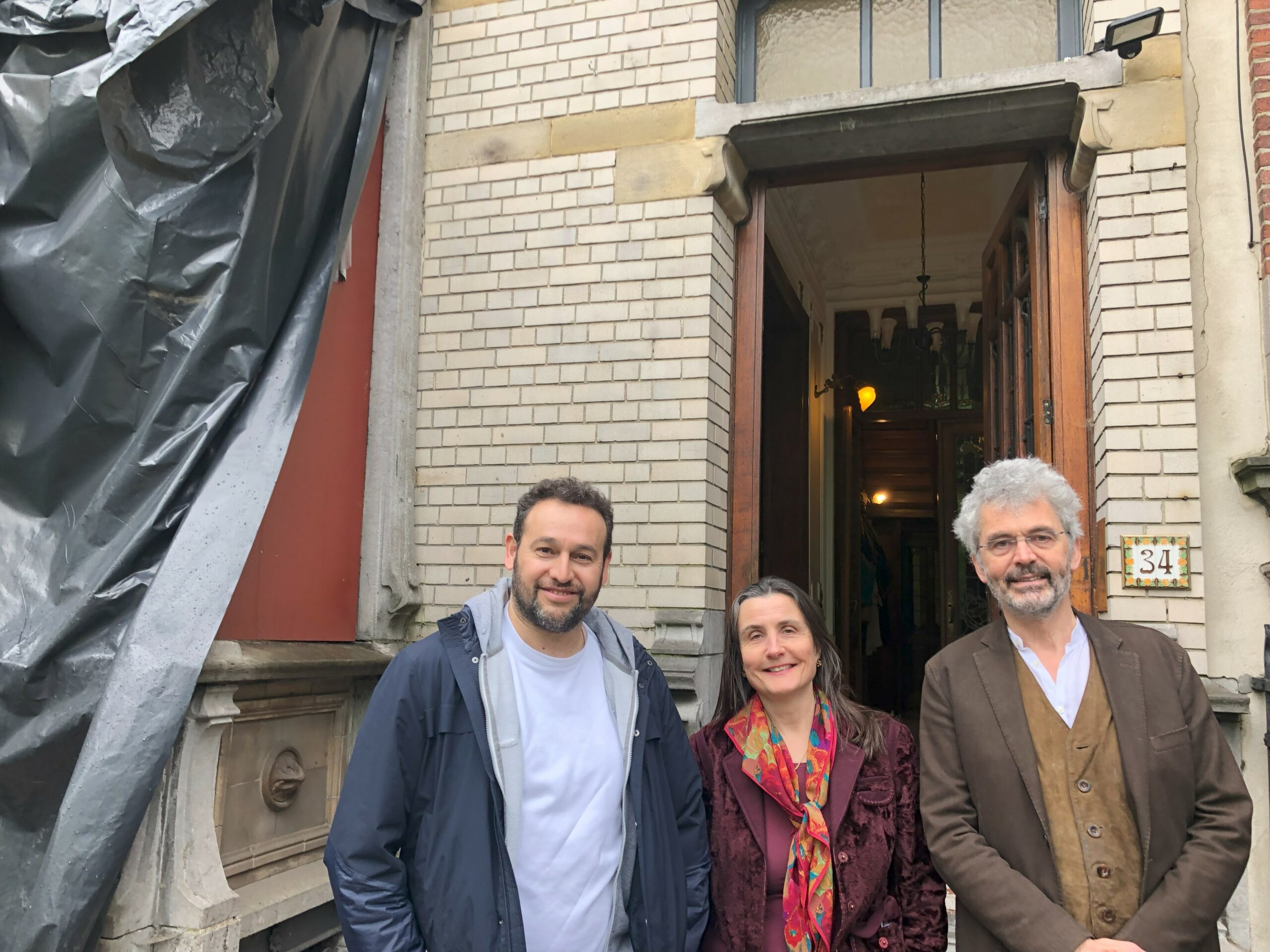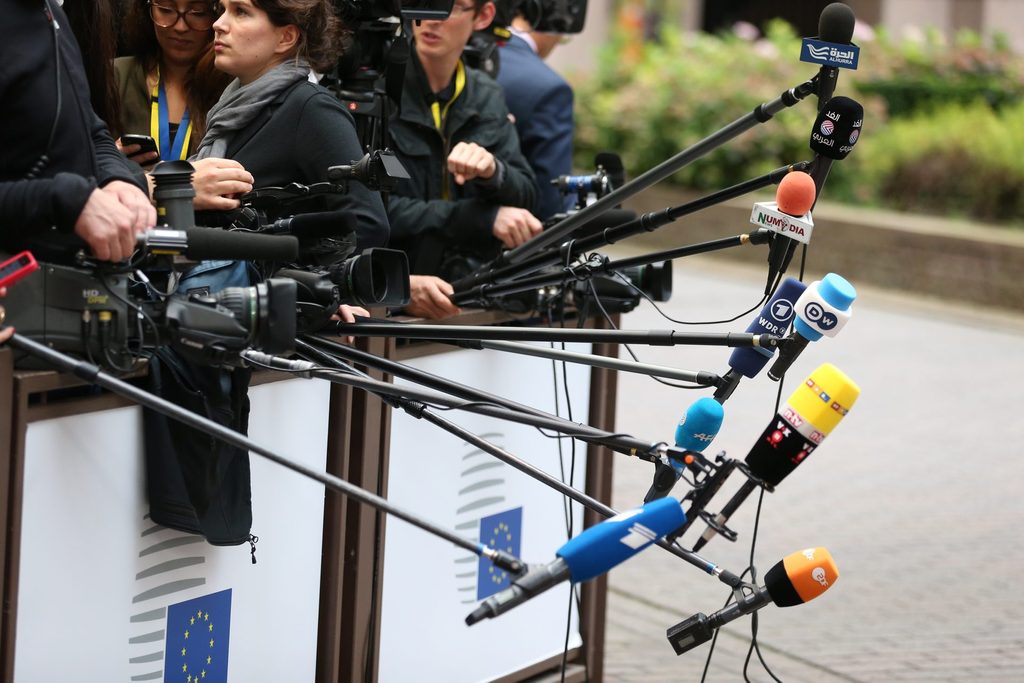As questions over EU accession and NATO membership gather pace in Eastern European countries, on-the-ground reporting on both institutions has never been so crucial. However, there is a gaping absence of foreign correspondents from affected countries in Brussels. A new media initiative seeks to rectify that.
Euractiv founder Christophe Leclercq and his wife Sharon have extensive experience of welcoming foreign nationals into their family home in Etterbeek.
Most recently, Ukrainian journalist and refugee Sofiia Nazarenko has lived with the couple, forwarding her career by writing over 500 articles and speaking on national Ukrainian television several times a week. However, she is one of just 20 Eastern European correspondents in Brussels despite the region making up one third of the EU's population.
This time, the couple is going one step further and vacating their home entirely. Leclercq's new initiative, 'Maison du MédiaLab', aims to narrow the information gap that results from too little reporting on the EU and NATO.
Every six months, a fresh batch of Eastern European journalists will take up residence in the couple's home, benefitting from free accommodation, tailored training and networking opportunities. The ultimate aim is to establish these individuals as foreign correspondents in the European capital as a way to implement structural change and prevent misinformation from taking root in domestic media.

Inside the Leclercq's family home in Etterbeek. Credit: The Brussels Times
"The countries trying to join the EU are poorly represented in Brussels," Médialab's Managing Director David Mekkaoui told The Brussels Times. "People are trying to discuss the integration of Ukraine, Moldova and others into the EU but they are poorly informed. This is what happens when there aren't enough correspondents from those countries working here."
"That is one of our missions at Médialab: to help democracy in Europe by creating a more diverse press corps."
'Existential' issue
Médialab has concrete long-term goals: increase the number of Eastern European correspondents in Brussels from 20 to 60 in the next five years, thereby contributing to impactful structural change.
However, Leclercq considers the issue to be an "existential" one in the immediate future too. "The media does not have the luxury of not bothering about the short-term," he told The Brussels Times. "For instance, it is essential that Ukrainians understand what the EU and NATO are really about, because [Ukrainian reporting] is full of dreams and fake news right now. The media has an enormous role to play to better inform public opinion."

Credit: Maison du Médialab
Despite the urgency behind the questions facing Ukraine regarding its future with the EU, the country's national broadcaster Suspilne does not have a single reporter based in Brussels. Similarly, there are currently no correspondents employed by Moldovan media covering the institutions.
Co-founders' club
The first group taking up residence in the Leclercq home will arrive in September and will include Ukrainian, Moldovan and Georgian reporters. Ahead of this, Leclercq is keen to reach funding goals by May, which will allow for the correspondents-in-training to live as freely as possible in Brussels. A separate Médialab project called Stars4Media is funded by the EU but this latest initiative is largely dependent on the private sector.
"My wife and I are providing housing for free, but when we thought about it, we realised we needed much more money than that," he explained. "We need to pay for the work they do, the coaching they receive, visa facilitation, event organisation and more."

L-R: David Mekkaoui, Sharon Leclercq-Spooner and Christophe Leclercq outside Maison du Médialab. Credit: The Brussels Times
Médialab is therefore calling for financial contributions to the project, with the offer of inclusion in high-profile networking events in exchange. Inauguration ceremonies in September and November will include outgoing and incoming EU commissioners and MEPs, respectively.
"Anyone who wants to join us on this project can become a co-founder and help to set it in motion," explained Mekkaoui. "Those who contribute will remain part of the club and will be associated with the future of this house."
The project is not just about better informing Eastern Europeans about Brussels, but informing Western Europe about its counterparts. Leclercq, a long-time admirer of Eastern European culture, is keen to spread each country's rich specificities with a Brussels-based audience through cultural evenings and events.

